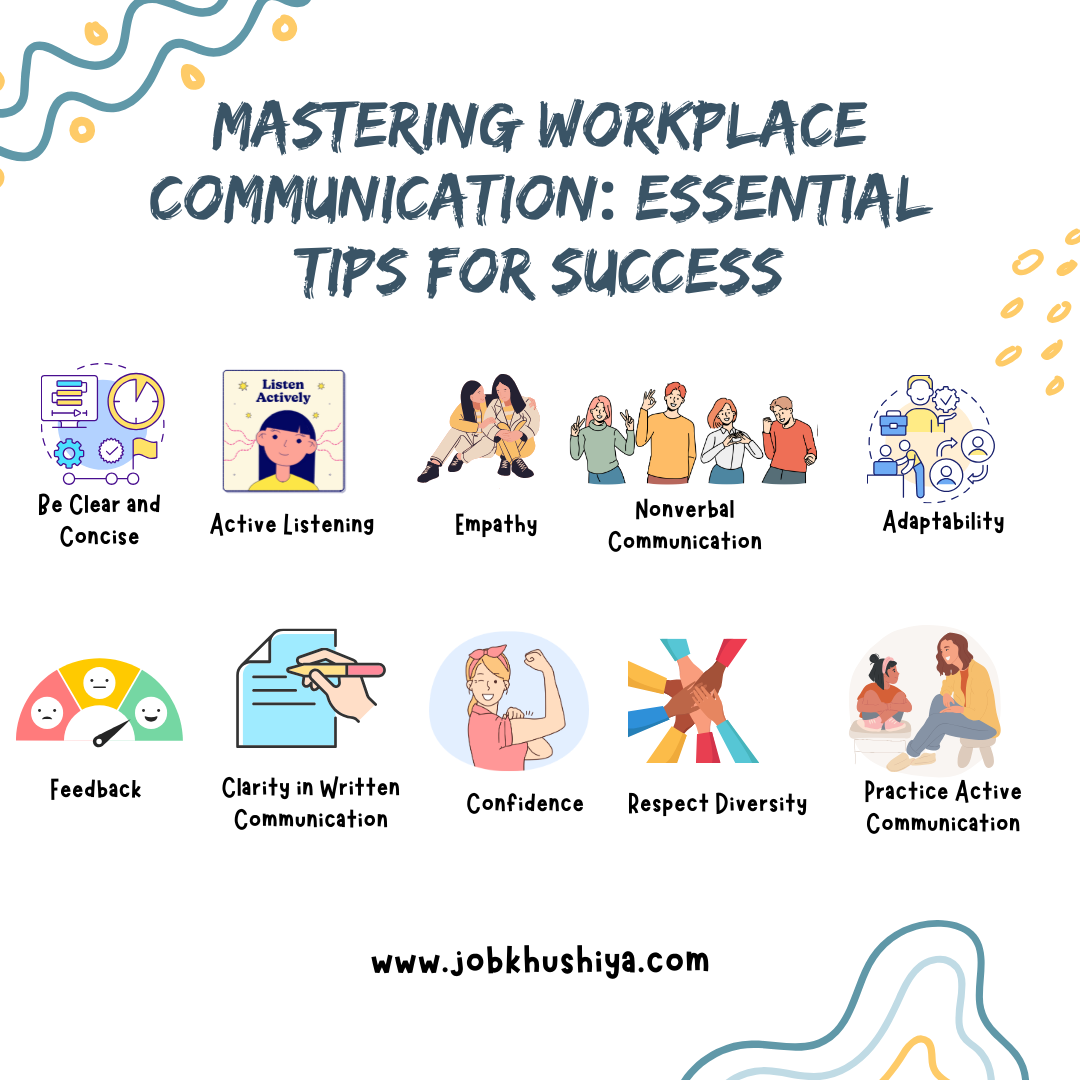In the dynamic landscape of today’s professional world, effective communication skills are the cornerstone of success. Whether you’re collaborating with colleagues, leading a team, or interacting with clients, the ability to convey your thoughts clearly and listen actively is invaluable. Strong communication skills not only facilitate smoother operations within the workplace but also foster better relationships and drive productivity. Here are some essential tips to help you master workplace communication:
- Be Clear and Concise: Clarity is key to effective communication. When conveying a message, be sure to articulate your thoughts in a straightforward manner, avoiding ambiguity or unnecessary jargon. Use simple language that everyone can understand, and get to the point without beating around the bush.
- Active Listening: Communication is a two-way street, and active listening is just as important as speaking. Pay attention to what others are saying, maintain eye contact, and show genuine interest in their perspective. Avoid interrupting and instead, ask clarifying questions to demonstrate your engagement and understanding.
- Empathy: Cultivate empathy in your interactions by putting yourself in the shoes of others. Understand their emotions, concerns, and motivations, and respond with sensitivity and understanding. Empathetic communication builds trust and rapport, fostering stronger relationships in the workplace.
- Nonverbal Communication: Remember that communication extends beyond words. Your body language, facial expressions, and tone of voice also convey messages. Maintain open body language, make eye contact, and use a friendly tone to create a positive atmosphere and convey sincerity.
- Adaptability: Recognize that different situations and individuals may require different communication approaches. Be adaptable in your communication style, tailoring it to suit the context and preferences of your audience. Flexibility enhances your effectiveness in conveying messages and resolving conflicts.
- Feedback: Constructive feedback is essential for growth and improvement. Offer feedback in a constructive and respectful manner, focusing on specific behaviors or actions rather than personal characteristics. Similarly, be open to receiving feedback from others, viewing it as an opportunity for self-improvement.
- Clarity in Written Communication: In today’s digital age, much of workplace communication occurs through written channels such as email, instant messaging, or project management tools. Ensure clarity in your written communication by proofreading for errors, organizing information logically, and using formatting techniques to highlight key points.
- Confidence: Confidence in communication instills trust and credibility. Speak with conviction and authority, but avoid arrogance or aggressiveness. Projecting confidence inspires confidence in others and encourages open dialogue and collaboration.
- Respect Diversity: Respect and embrace diversity in the workplace, including differences in culture, background, and communication styles. Be mindful of cultural nuances and adapt your communication approach to accommodate diverse perspectives and preferences.
- Practice Active Communication: Communication is a skill that improves with practice. Actively seek opportunities to communicate, whether it’s through team meetings, presentations, or one-on-one conversations. The more you practice, the more confident and proficient you’ll become in your communication abilities.
In conclusion, mastering workplace communication is essential for professional success. By cultivating clear, empathetic, and adaptable communication skills, you can foster better relationships, enhance productivity, and contribute to a positive work environment. Incorporate these tips into your daily interactions, and watch as your communication skills flourish, paving the way for greater success in your career.
